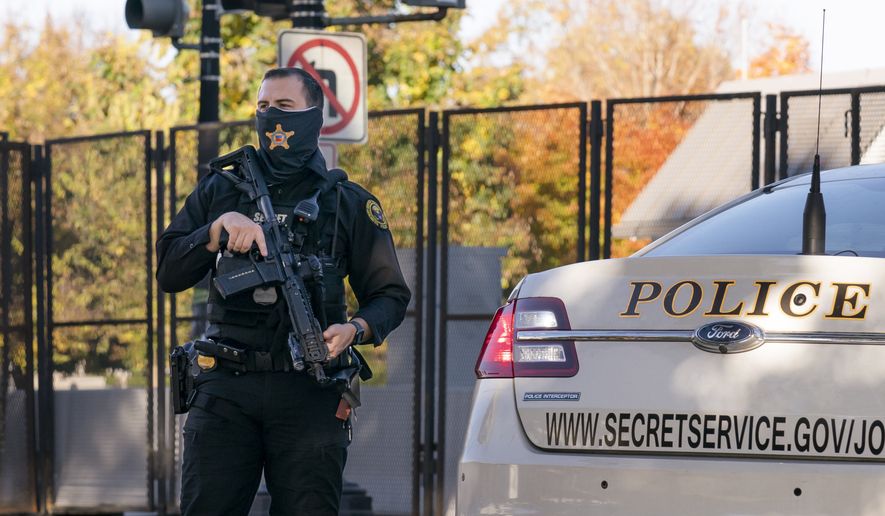The U.S. Secret Service has handed over thousands of documents to the special Jan. 6 committee but has yet to recover a cache of missing text messages its agents exchanged on the day of the 2021 Capitol riot.
The agency said it has been unable to retrieve the missing texts but will continue to search for any lost communications from that day.
“We continue to scrutinize our records, databases, and archives to ensure full compliance with the Committee’s subpoena,” Secret Service spokesman Anthony Guglielmi said in a statement. “We are taking all feasible steps to identify records responsive to the subpoena, to include forensic examinations of agency phones and other investigative techniques.”
So far, the Secret Service has provided only one text exchange to the Homeland Security’s inspector general, after it requested texts from two dozen personnel between Dec. 8, 2020, to Jan. 8, 2021.
Inspector General Joseph Cuffari made the request of the agency for the text exchanges in June, according to a letter from the Secret Service to the Jan. 6 committee.
Committee members had hoped the texts would have shed more light on the events before and during the riot, specifically the actions of former President Donald Trump.
SEE ALSO: Judge in Bannon’s case vows to keep trial from becoming ‘political circus’
The committee will hold a prime-time hearing Thursday to focus on Mr. Trump’s 187 minutes of inaction while a pro-Trump mob stormed the Capitol on Jan. 6, 2021. Thursday’s televised event will cap a series of hearings that began in June in which the committee rolled out the findings of its yearlong investigation.
Aside from the texts, the Secret Service said it turned over thousands of pages of other documents, including planning records and agents’ cell phone usage.
The potential texts stem from losses that may have come from a phone migration the Secret Service began on Jan. 27, 2021.
During the transition, Secret Service employees were asked to back up their text messages, and any staffer who did not would have permanently deleted texts once the phones got wiped out during the migration.
Members of the committee expressed dismay at the agency’s decision to issue a phone migration, while the riot was under investigation.
“Nobody along the way stopped and thought, well, maybe we shouldn’t do the migration of data and of the devices until we are able to fulfill these four requests from Congress,” Rep. Stephanie Murphy, Florida Democrat, said. “The process as explained to us was simply to leave it to the [individual] agent to determine whether or not there was anything on their phones worth saving that was necessary to save for federal records.”
Other members also said any missing materials from the Secret Service should be taken seriously.
“I am very concerned about them,” said Rep. Eric Swalwell, a California Democrat on the Homeland Security Committee that oversees the agency.
The missing Secret Service texts are not the first time documented correspondence got deleted before an event of intense public scrutiny.
In 2014, a large number of emails belonging to Internal Revenue Service official Lois Lerner got lost after lawmakers demanded the agency turn over the records for an investigation into the agency’s targeting of conservative nonprofits.
That same year, former Secretary of State Hillary Clinton handed the State Department roughly 30,000 work-related emails, though also claimed a similar number of purely personal emails got deleted. Ms. Clinton used a personal email account to conduct work-related business.
The emails were deleted before a congressional subpoena Mr. Clinton received for information related to the 2012 attack by Islamist militants on a U.S. diplomatic outpost in Benghazi, Libya, in which Ambassador Christopher Stevens and three other Americas were killed.
A House Republican probe of the attack focused on Ms. Clinton, treating the incident as a national security concern.
• Mica Soellner can be reached at msoellner@washingtontimes.com.




Please read our comment policy before commenting.